+91 9310434361
Enquiry Us
Robotic Surgery
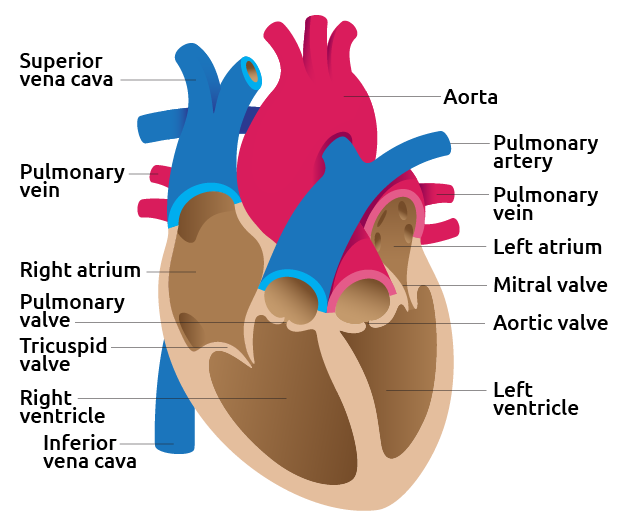
Heart Transplant
A Heart Transplant is a medical procedure that involves replacing a failing heart with a healthy heart from a donor. The process is seen as a last resort for treating heart conditions and is generally recommended by doctors when other treatments haven’t been fruitful. These treatments are surgeries, and they use medications to treat heart problems.
...Heart failure is a condition where the heart is not working as efficiently as it usually should. Your entire body needs blood to perform all the necessary functions. When the blood flow becomes insufficient, due to the heart being unable to pump blood adequately, then disruption occurs; this makes your heart weak. Heart failure can affect any side of your heart, or it can affect both sides of your heart at the same time.
What is the structure of the heart?
The heart is a hollow, muscular organ that pumps blood to different parts of the body with the help of arteries and veins. Let us understand the basic structure of the heart.
The heart consists of four chambers which are separated from each other by valves and septum. The four chambers of the heart include:
- The right atrium – the upper right chamber: This chamber of the heart receives deoxygenated blood - blood with low oxygen concentration - from the body. Once the right atrium is full it pumps the blood with a gush into the right ventricle.
- Right ventricle – the lower right chamber: Once the deoxygenated blood reaches the right ventricle it pumps the blood to the lungs. After reaching the lungs, there is a transfusion of gases in the blood and the blood oxygen concentration is increased.
- Left atrium – the upper left chamber: When blood oxygen concentration increases, the lungs pump the oxygenated blood into the left atrium.
- Left ventricle – the lower left chamber: This chamber receives oxygenated blood from the right atrium. When the oxygenated blood reaches the left atrium, it pumps the blood to the body.
The heart is covered by the pericardium which is lined by a serous fluid. The serous fluid present in the inner lining of the pericardium prevents friction as the heartbeats.
While the heart supplies blood to the different parts of the body, the coronary arteries run around the surface of the heart, providing oxygen-rich blood to the heart muscles. Apart from the blood supply, nerves also play an important role in the functioning of the heart. The nerve tissue helps to control the contraction and relaxation of the chambers of the heart.
What is Heart Failure?
Heart failure is one of the leading causes of death globally. Heart failure accounts for around 32% of global deaths. But have you ever wondered what heart failure is?
According to the CDC, heart failure is marked by the inability of the heart to pump blood to different parts of the body including the heart efficiently. Heart failure is a grave condition that needs proper
medical intervention
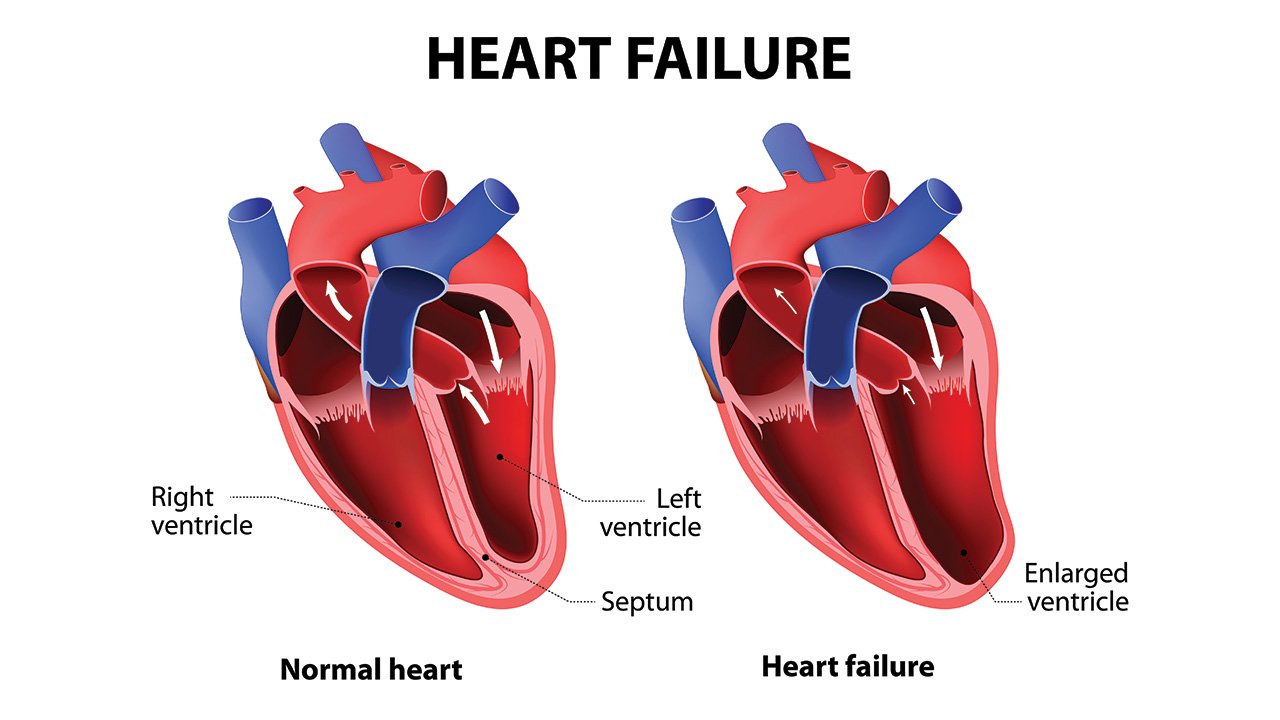
Symptoms of Heart Failure:
- Shortness of breath; the shortness of breath is persistent even while resting.
- Edema or swelling in the feet, legs, and ankles.
- Feeling tired almost all the time.
- Irregular heartbeats.
- Ascites or swelling in the abdomen.
- Loss of memory and reduced concentration.
- Bluish discoloration on the lips, the tip of the nose, and on the fingertips.
- Nausea and loss of appetite.
ELIGIBILITY FOR A HEART TRANSPLANT
You need to meet the eligibility criteria before you can undergo heart transplant surgery. Not every individual who needs a heart transplant can get a heart transplant procedure done because in some cases, it can be dangerous.
Several factors determine your eligibility, and your doctor will ensure you're eligible before you are recommended to get a heart transplant procedure.
Factors Affecting Eligibility for a Heart Transplant:
The following are some factors that affect your eligibility for a heart transplant:
- When you have an active infection, your doctor will not recommend heart transplant because it can cause more complications.
- If you are not ready to take precautionary measures to ensure you keep your new heart healthy, your doctor won't recommend the heart transplant procedure.
- If your doctor thinks that recovering from a heart transplant surgery will be difficult for you, then they may not recommend the procedure.
- If someone in your family has cancer, or if there is a history of cancer, then you might not be a good candidate for a heart transplant procedure.
- When you are suffering from another health issue that can potentially cut your life short, even after receiving a healthy heart, then your doctor won't recommend a heart transplant.
The eligibility criteria for getting a heart transplant will be determined by your doctor based on your current health, age, and lifestyle, among other factors.
What Happens When the Heart Does Not Work Properly?
Have you ever wondered what happens if your heart does not work properly? Well, when the heart fails to work efficiently, it can cause early symptoms like:
- Pain in chest and arms
- Frequent bouts of cough
- Swelling in lower extremities, however, the swelling generally subsides when the legs are rested at a height.
- Loss of appetite with persistent nausea
- A constant feeling of fatigue or tiredness
- Persistent anxiety
- Unexplained rashes and spots on the skin
- Heavy perspiration
- The face appears pale.
If you experience the following symptoms, please consult your doctor. If these symptoms are not taken care of at an early stage, it can cause heart failure.
Different Treatment Options for Heart Failure:
The diagnosis of heart failure is overwhelming for many. While heart failure is a complicated heart condition, your doctor might advise you with the best treatment options. The different treatment options for heart failure include:
- Medication
- Pacemaker or defibrillator
- IV drug therapy
- Left ventricular assist device
However, sometimes the above treatments fail. When all the treatments fail, then your doctor may advise you for a heart transplant.
Finding a Donor for Heart Transplant
Firstly, you will be put on a waiting list after you are found to be eligible for a heart transplant. At the moment, there are thousands of people waiting for heart transplants because there are not enough hearts available. When you are waiting for a healthy donor heart to be available, your condition will be monitored by doctors.

Your treatment can be changed depending on your condition when you are waiting for a heart to be available for transplantation surgery. Some people develop severe medical conditions, where they may not be eligible for heart transplant surgery anymore. In this case, your name will be removed from the list until you recover from the health problem.
Depending on your recovery, you may be put back on the waiting list for a donor's heart. When you are waiting, your doctors can recommend cardiac rehabilitation to you, which provides you with information about how to stay healthy before and after a heart transplant surgery.
When you are waiting for a donor's heart, sometimes your condition can deteriorate. This can be because the treatment that you are undergoing is unable to support your vital organs. This can cause health complications to arise. In such a case, you might need a device such as the ventricular assist device to be implanted. This helps to keep you stable until you receive a donor heart which can be transplanted in place of your diseased heart.
Once a donor's heart becomes available, several factors determine whether it is a good match or not. These factors include the duration you have for a donor's heart, the urgency of your request depending on the condition, and your blood type, among others. Only when the donor's heart makes a good match, your heart transplant procedure can be started.
ALAAFIYAH CARE is known worldwide as the provider of the most extensive and comprehensive medical tourism services. The company is connected to the largest network of world-class hospitals all around the globe for better convenience to the patients traveling abroad.
The hospitals and healthcare centers associated with ALAAFIYAH CARE are renowned for maintaining the highest accreditations for reliability in healthcare treatment.

Kidney Transplant Surgery
A Kidney Transplant is a surgery to place a healthy kidney from a living or deceased donor into a person whose kidneys no longer function properly.
The kidneys are two bean-shaped organs located on each side of the spine just below the rib cage. Each is about the size of a fist. Their main function is to filter and remove waste, minerals, and fluid from the blood by producing urine.
...When kidneys lose this filtering ability, harmful levels of fluid and waste accumulate in the body, which can raise blood pressure and result in kidney failure (end-stage renal disease). End-stage renal disease occurs when the kidneys have lost about 90% of their ability to function normally.
Common causes of end-stage kidney disease include:
- Diabetes
- Chronic, uncontrolled high blood pressure
- Chronic glomerulonephritis — an inflammation and eventual scarring of the tiny filters within the kidneys
- Polycystic kidney disease
People with end-stage renal disease need to have waste removed from their bloodstream via a machine (dialysis) or a kidney transplant to stay alive.

Kidney Transplant Waiting Times
Currently, more than 47,000 people are on the waiting list for a kidney transplant in the US. We are able to get patients from first contact to life saving surgery in a matter of a few weeks.
Kidney Transplant Costs
In addition to reducing waiting times, ALAAFIYAH CARE can also reduce the costs for kidney transplant dramatically. Whereas costs in the US are often in excess of $150,000, costs for kidney transplant in India will be around $20,000.
Kidney Transplant Preparation before You Leave Home
We need to get all of the pertinent records of the recipient. We can tell you exactly what those records are. Your records will allow our surgeons to medically qualify you. Next to the donor qualifying medically, the requirement of having a donor that is closely related to the recipient is the most important requirement. The medical requirements are that the donor is between 18 and 55 years old and that the blood group is suitable.
Additional medical requirements will be discussed in person. Both recipient and donor will go through quite extensive testing prior to leaving home. ALAAFIYAH CARE will guide you through the needed tests quickly.
In addition to the medical tests, there also are many legalities that need to be fulfilled that are beyond the requirements for other types of surgeries. Again, ALAAFIYAH CARE can quickly assist you in gathering the correct paperwork.
Kidney Transplant Preparation
After your arrival, you and your donor will go through further testing. You will both also receive special diets to strengthen you for surgery. The kidney surgery is of high risk and you will need to take care of yourself
To determine your suitability for a transplant we will assess your general health and medical history. Both the surgery and the medications required to prevent rejection place a strain on your body.
You will be asked to undertake an assessment (called “the workup”) which will include medical tests such as:- Heart tests such as echocardiogram and heart stress test
- Blood vessel imaging (via ultrasound)
- Blood tests for viruses such as hepatitis B/C, HIV, CMV (cytomegalovirus), EBV (glandular fever) and VZV (chicken pox)
- VRE bacteria swab
- Tissue typing
- Blood tests for tissue matching
Kidney Transplant Surgery
The surgery itself is complex. Right after kidney surgery both donor and recipient will be in separate ICU’s. The recipient will spend a few days there. The donor is usually moved to a regular hospital room much quicker.
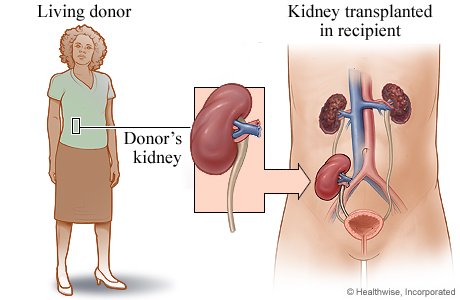
Kidney Transplant Recovery
The total length of stay is usually a few weeks, depending on the specific circumstances. ALAAFIYAH CARE will make all the arrangements for you.
At ALAAFIYAH CARE, health care professionals trained in many medical specialties work together as a team to ensure favourable outcomes from your kidney transplant.Having all of this subspecialized expertise in a single place, focused on you, means that you're not just getting one opinion — your care is discussed among the team, your test results are available quickly, appointments are scheduled in coordination, and your transplant care team works together to determine what's best for you

Liver Transplant Surgery
A Liver Transplant procedure is a major surgical procedure that is useful for treating a damaged or malfunctioning liver in a patient. In this procedure the damaged liver is removed and replaced with a healthy liver from a donor.
The donor liver can be sourced from a living donor or a cadaver.
The liver is the largest organ inside the body and is needed for several important functions, including:
...- Removing toxins and bacteria from blood
- Regulate immune system to prevent infection
- Process hormone production, nutrient absorption, and success of medicinal drugs
- Making bile to help absorb fat, fat-soluble vitamins, and cholesterol
- Developing proteins to improve blood viscosity
A Liver Transplant is advised as a last resort against extensive infection or damage to the liver which is not treatable with other treatment methods.
When is a Liver Transplant Required?
Liver Transplant procedure is a last-resort treatment for people with extensive damage to the liver or in case of liver failure. This surgical transplant treatment is advised when other treatment methods for damage to the liver have been unsuccessful in treating the condition. This is often used in treating liver cancer.
Some of the major reasons that a liver transplant procedure is needed are:
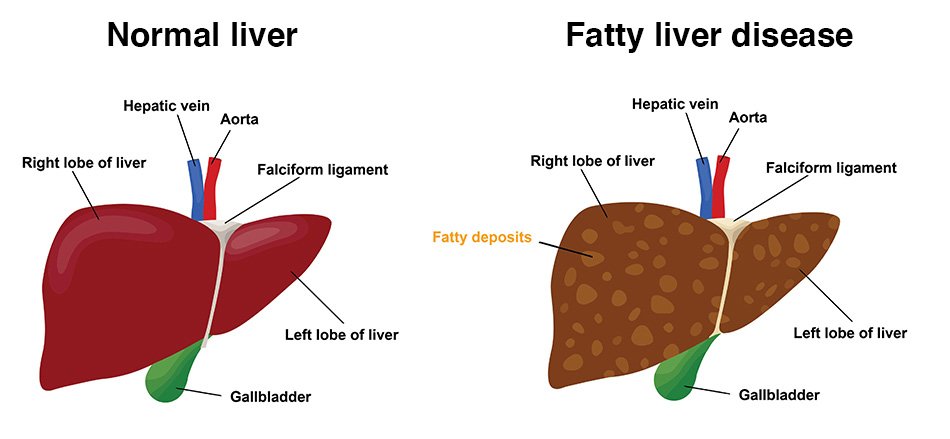
- Hepatitis B/Hepatitis C
- Alcohol-induced cirrhosis of the liver
- Non-alcoholic fat-based liver disorder
- Hereditary conditions that affect the liver (e.g. Wilson’s disease)
- Medical diseases that affect the bile duct
- Liver cancer treatment
Are There Any Risks Associated with Liver Transplant?
As is seen in any major surgical operation, the liver transplant surgery also carries certain surgical risks, such as:
- Bile duct problems
- Blood clots
- Bleeding
- Infection
- Donor liver failure
- Donor liver rejection
- Seizures
- Confusion
The doctors take every precaution necessary to avoid these surgical and immune complications from arising after a liver transplant procedure.
How is Liver Transplant Procedure Performed?
Liver transplant procedure is a major surgical procedure that requires extensive operation. The surgeon will administer general anesthesia in order to avoid pain or discomfort to the patient during the procedure. Several tests are performed to check if the patient is completely ready to undergo a major surgical procedure.
Once the anesthesia is administered, the surgeon will make an incision in the abdomen to access the damaged liver. The surgeon will carefully remove the liver by disconnecting it precisely from the blood vessels, etc. Once the damaged liver is removed, the surgeon will waste no time in transplanting the donor liver into the patient’s body. This donor liver is carefully evaluated prior to donating and transplanting for any malfunction or incompatibility with the receiver.
The surgeon will carefully reconnect the blood vessels to the donor liver, and the surgeon will close the incision using fine sutures to leave a barely-visible scar on the abdomen. This is an extensive surgical operation and may require 8-10 hours in the operating theater.
What is the Success Rate for Liver Transplant?
Although the rate of success for liver transplant is quite high, the exact factors for successful liver transplant procedure depend on the particular situation.
The average success rate for liver transplant is as high as 70% and more for a period of five years post-transplant.
Why Choose ALAAFIYAH CARE for Liver Transplant Procedure?
ALAAFIYAH CARE is renowned as being the leading medical tourism provider in the world. With a large network of world-class specialty hospitals and global-standard healthcare facilities connected to it,
ALAAFIYAH CARE offers extensive choice to patients for selecting the doctor, hospital, and country for getting a successful and affordable liver transplant.

Lung Transplant
The surgical procedure that is performed to replace a diseased or failing lung with a healthy lung, typically from a deceased donor is called a lung transplant
...
Why Is A Lung Transplant Done?
Lung transplantation is considered the last resort for treating lung failure. Other treatments and lifestyle changes will probably be tried first.
Health conditions that can damage the lungs to the extent to the requirement of a transplant include:
Health conditions that can damage the lungs to the extent to the requirement of a transplant include:- Chronic obstructive pulmonary disease (COPD)
- Cystic fibrosis
- Emphysema
- Pulmonary fibrosis
- Pulmonary hypertension
- Sarcoidosis
What Are The Types Of Lung Transplants?
The types of lung transplant procedures include the following:
- Single lung transplant - the transplant of one lung
- Double lung transplant - the transplant of both the lungs
- Bilateral sequential - the transplant of both lungs, performed one at a time
- Heart-lung transplant - the transplant of both the lungs and the heart taken from a single donor
How Is A Lung Transplant Done?
Before the Procedure:
The emotional stress of waiting for a donor lung can be severe.
Once a patient has passed the required tests and met the eligibility criteria, they will be placed on a waiting list for the donor lung. The waiting time on the list depends on the following:
- The availability of the matching lung
- Blood type
- The geographic distance between the donor organ and the patient who is going to be the recipient of the lung transplant
- The severity of the condition
- The size of the donor’s lung
- The overall health
The patient will have to take a number of laboratory and imaging tests. They can also get emotional and may need financial counseling as well. The doctor needs to be sure that a patient is prepared fully for the aftermath of the procedure.
The doctor will give a complete list of instructions on how to be better prepared for the surgery. When the patient is waiting for a donor lung, it is good to be prepared well in advance because the notice of an organ’s availability can come at any time.
The patient needs to make sure that they keep all their contact information up to date at the hospital because the hospital should be able to contact the patient immediately if a donor lung is available. When the patient is notified of the availability of a donor lung, they will be asked to reach the transplant facility immediately.
Why Choose ALAAFIYAH CARE as Your Preferred Healthcare Destination
ALAAFIYAH CARE offers you the best-in-class hospital and cutting-edge technology, along with enhanced patient-care initiatives. Our Centers are one of the world’s leading centers offering minimally invasive surgery, including the cutting-edge Da Vinci robotic surgery for treating different chest ailments, including benign as well as malignant.
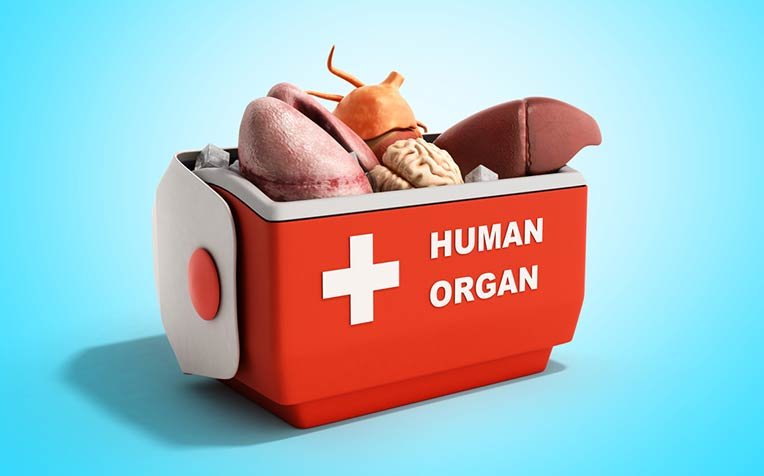
What is Organ Transplantation?
Organ Transplantation is the innovative surgical procedure for implanting a healthy donated organ to replace a damaged organ in a person.
This extensive surgical procedure is useful to replace various important organs as well as connective tissues that have been injured or are malfunctioning in any way. Organ transplantation is actually the second aspect of a procedure. The first aspect is the organ donation process. This requires the surgeon to remove the donated healthy organ from the donor (live or cadaver).
...The person donating organ is known as ‘donor’ and the person who is having the organ transplanted is known as ‘recipient’. Ideally, the number of (potential) recipients is larger than the number of organ donors. Hence, the organ transplantation procedure requires a waiting list as well as extensive surgery to get completed.
Organ transplants require a long waiting list at times, which is unfortunate for urgent cases. It is important to get connected to the right organization for getting the most reliable, safe, and fast organ transplant.
What are the Organs and Tissues used for Organ Transplant?
Although almost all organs or tissues in the human body suffer from damage or disease at one time or the other, it is not possible to transplant all of these organs or tissues, yet. However, with immense advances in medical science, the innovative surgical technology is able to replace several malfunctioning or injured organs and tissues successfully.
These are the various commonly transplanted organs and tissues:
Liver
Liver transplants are required when the liver has suffered extensive damage due to medical disorders (such as cancer, cirrhosis, etc), injury or if it is malfunctioning.
The liver transplant operation usually lasts for around 6-12 hours. In this, the surgeon will carefully remove the damaged liver and replace it with the healthy donor liver. The surgeon will connect the liver as best as possible. Several tubes are required to be placed in the body to help carry out the functions of the liver till the body accepts the transplanted liver.
Kidney
Kidney transplantation procedure requires the surgeon to remove the damaged/malfunctioning kidney and replace it with a healthy donor kidney.
The surgeon will transplant the donor kidney and fix it below the original position of the kidneys, and connect the transplanted kidney to the blood vessels and the urinary system. This allows the transplanted kidney to be closer to the bladder and function at optimum levels.
Heart
A Heart transplantation procedure is one of the more complex organ transplant surgeries. The surgery procedure will last anywhere from between 4-12 hours. The healthy donor heart is removed by cutting the aorta and pulmonary artery in med-section. Both atria are then removed carefully from the veins going into the heart.
After the surgeon has sourced the donor heart, the heart is immediately prepared for transplant. After the patient is prepped, the surgeon will begin the extensive surgical procedure of removing the damaged/malfunctioning heart and set to implanting the healthy donor heart carefully. The surgeon will connect the aorta and the pulmonary artery properly and both the atria as well.
As this is an extensive surgery, the doctors advise at least 1-2 weeks of hospital care for successful and safe recovery.
Lung
A Lung transplantation surgery is required when one/both lungs suffer extensive damage or are not able to function properly.
The lung transplant procedure lasts for about 6-8 hours and requires the surgeon to place several tubes in the patient’s body to allow the normal functioning of body systems while under sedation for surgery. Catheters are inserted to help deliver fluids, antibiotics, nutrition solutions, etc through the veins. A ventilator helps the patient to breathe normally with mechanical assistance.
The surgeon may also place the patient on a heart/lung machine which helps to bypass the flow of blood from the heart and lungs, which makes it safer to operate on them. A nasal tube is used to drain gastric secretions from the stomach as well as a urine catheter.
Why Choose ALAAFIYAH CARE For Organ Transplantation?
ALAAFIYAH CARE is known worldwide as the provider of the most extensive and comprehensive medical tourism services. The company is connected to the largest network of world-class hospitals all around the globe for better convenience to the patients traveling abroad.
The hospitals and healthcare centers associated with ALAAFIYAH CARE are renowned for maintaining the highest accreditations for reliability in healthcare treatment.
ALAAFIYAH CARE works intuitively to connect recipients with expert organ transplant consultants, potential donors, and the best surgeons for organ transplants.
